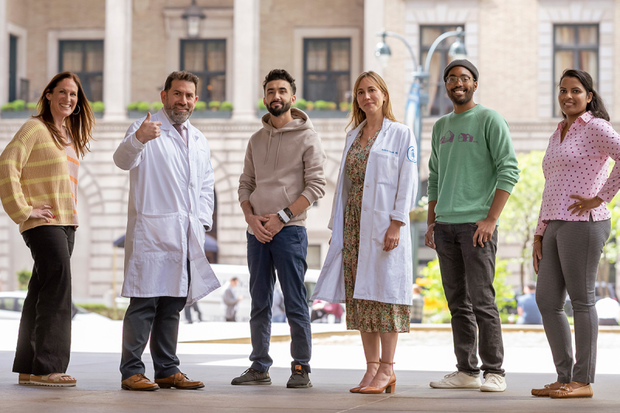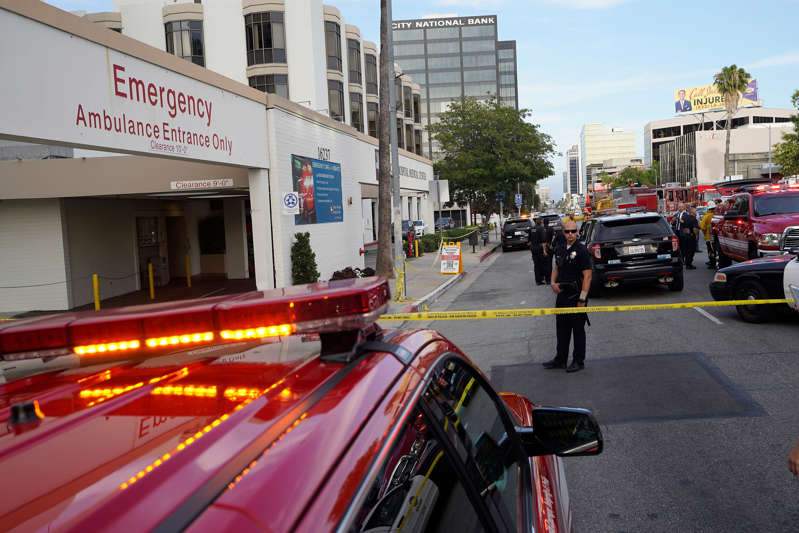The cancer community got some much-needed good news this week when researchers from the Memorial Sloan Kettering Cancer Center announced that every single rectal cancer patient enrolled in an experimental immunotherapy clinical trial saw their cancer go into remission.
All 14 individuals in the study had rectal cancer in a locally advanced stage with a rare mutation called mismatch repair deficiency (MMRd). They received six months of treatment involving an immunotherapy drug called dostarlimab, manufactured by the company GlaxoSmithKline, which helped fund the study, published Sunday in the New England Journal of Medicine.
By the end of the trial, the cancer was undetectable by physical exam, endoscopy, or PET and MRI scans, researchers said.
One patient, Sascha Roth, was on her way to New York for weeks of radiation treatment when she heard the good news that she no longer had rectal cancer.
“I told my family,” Roth told reporters. “They didn’t believe me.”
Dostarlimab costs around $11,000 per dose, according to the company. Patients received one dose every three weeks for six months. It works by exposing the cancer cells inside the body, so the immune system can target and destroy them.
“This new treatment is a type of immunotherapy, a treatment that blocks the ‘don’t eat me’ signal on cancer cells enabling the immune system to eliminate them,” explains Dr. David Agus, who was not involved with the study.
“The treatment targets a subtype of rectal cancer that has the DNA repair system not working. When this system isn’t working there are more errors in proteins and the immune system recognizes these and kills the cancer cells.”
Patients continued to show no signs of cancer after six months or more of follow-up care, according to the study. None of them needed additional cancer treatment, such as radiation or chemotherapy. They remained cancer-free for a range of six to 25 months after the treatment ended.
“Amazing to have every patient in a clinical trial respond to a drug, almost unheard of,” Agus added. “It speaks to the role of personalized medicine — that is identifying a subtype of cancer for a particular treatment, rather than treating all cancers the same.”
None of the patients involved in the study suffered serious side effects, which also took researchers by surprise. The therapy uses a targeted approach to narrow in on cancerous cells without affecting other parts of the body, unlike other forms of cancer treatment.
“Surgery and radiation have permanent effects on fertility, sexual health, bowel and bladder function,” Dr. Andrea Cercek, a medical oncologist and principal investigator in the study, noted during a recent news release from the Memorial Sloan Kettering Cancer Center. “The implications for quality of life are substantial, especially in those where standard treatment would impact childbearing potential. As the incidence of rectal cancer is rising in young adults, this approach can have a major impact.”
“It’s incredibly rewarding,” Cercek said, “to get these happy tears and happy emails from the patients in this study who finish treatment and realize, ‘Oh my God, I get to keep all my normal body functions that I feared I might lose to radiation or surgery.'”
However, the trial is only one step in a much larger process. Researchers noted that the study only focused on a rare mutation of rectal cancer, but the 100% remission rate is a promising early signal. The team will move onto a larger study involving 30 patients to get a better picture of how the drug affects individuals in this group.
Dr. Hanna K. Sanoff of the University of North Carolina’s Lineberger Comprehensive Cancer Center, who was not involved in the study, says it is still not clear if any of the 14 individuals involved in the study are permanently cured of their cancer.
“Very little is known about the duration of time needed to find out whether a clinical complete response to dostarlimab equates to cure,” Dr. Sanoff wrote in an editorial accompanying the paper, but “These results are cause for great optimism,” she added.
If the drug continues to produce similar results, certain types of cancer patients may no longer need to undergo radiation or chemotherapy treatment.
“While longer follow-up is needed to assess response duration, this is practice-changing for patients with MMRd locally advanced rectal cancer,” said study co-leader Dr. Luis Diaz Jr., head of the division of solid tumor oncology at MSK.




